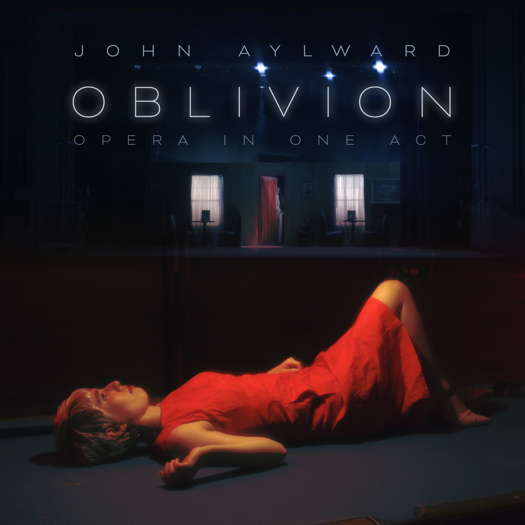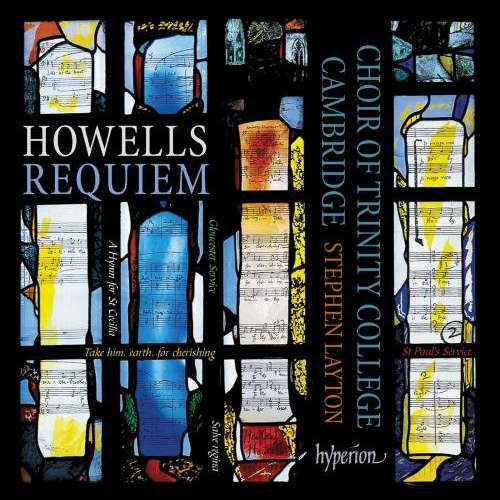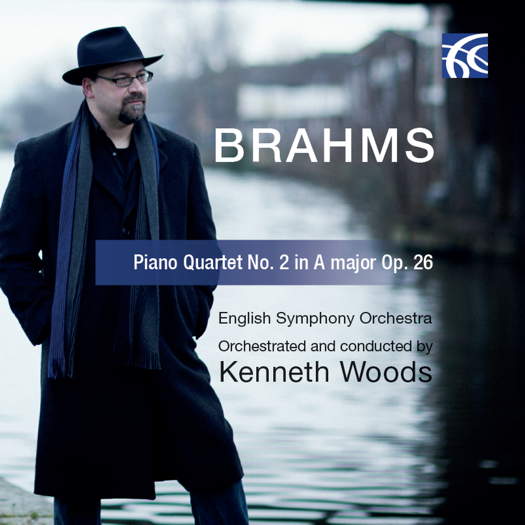- Teizo Matsumura
- H K Gruber
- Yevgeny Kolobov
- Berlin Philharmonic
- Gwendolen Avril Coleridge-Taylor
- Waltz King
- BR Klassik
- Amitai Pati

Nonexistence Reconsidered
JOHN DANTE PREVEDINI listens to a recording of John Aylward's opera 'Oblivion'
'... enigmatic and philosophically challenging ...'
Oblivion is an opera in one act with music and libretto by the US-based composer John Aylward, recently released by New Focus Recordings in a performance featuring tenor Lukas Papenfusscline, baritone Cailin Marcel Manson, baritone Tyler Boque, soprano Nina Guo, violist Laura Williamson, cellist Issei Herr, contrabassist Greg Chudzik and guitarist Daniel Lippel. In addition, the performance - which was recorded in June 2022 at the Bombyx Center for Arts and Equity in Florence, Massachusetts - features Aylward on electronics, Stratis Minakakis as music director and conductor and Tianyi Wang as electronic sound design assistant. The sixty-four-minute album is available in CD and digital format and includes a substantial booklet featuring a composer's note on the opera, a synopsis of the scenes, production photographs and the entire libretto.
To paraphrase Aylward's synopsis from the liner notes, Oblivion reimagines the Purgatorio of Dante Alighieri in the form of a modern dramatic archetype with influences from the writings of Joseph Campbell. Over the course of an instrumental prologue and six scenes, the opera tells the story of two recently deceased souls who awaken to find themselves as wanderers (Boque and Guo) in a mysterious room, having no memory of their lives on earth. Here they meet a Bound Man (Papenfusscline) whom the Hunter (Manson), who rules the land, declares to be dangerous and has tied up. Knowing only these facts, the wanderers must then choose whom to believe and what to do next.
The opera opens with about one minute of Aylward's electronics playing a quiet sound evocative of distant wind. This is followed by the entrance of freely atonal string music gradually settling into a late-Romantic-style sound world of continually shifting diatonic centers. The strings and electronics then subside and the electric guitar emerges briefly before the four-minute prologue continues attacca into the first scene, in which the First Wanderer, Hunter and Bound Man are introduced.
From scene one on through the rest of the opera, the vocal music is essentially all recitative with distinctive rhythmic patterns differentiating the personalities of the characters. For instance, the Bound Man is always heard singing more staccato than the others. Meanwhile, the textural momentum of the instrumental music is continuously shifting. In scene one, this includes moments of tremolo and pizzicato in the strings and long spacious notes in the guitar. At the same time, the harmonic palette freely explores chromatic and whole-tone sonorities, with tritones seeming to take on a role of structural emphasis.
Listen — John Aylward: Scene 1 (Oblivion)
(FCR370 track 2, 0:28-0:58) ℗ 2023 John Aylward :
Scene two sees a continuation of this sound world first established in scene one, namely the constant fluctuation of harmony and the use of dynamics and rhythmic energy to embody the action of the plot. This is music which - like the wanderers themselves - seems to exist in, and for, the moment, without an obvious orientation toward either origin or destiny. This scene focuses on the introduction of the Second Wanderer into the story and the relationship between the two wanderers in the afterlife. By now it is apparent that it is primarily the emotion of the dialogue and plot that dictates the form of the music and its organization, mostly through the aforementioned scheme of dynamics and rhythmic energy.
The harmonies in scene three, however, gradually emerge as an additional parameter of expressive emphasis, converging into a kind of tonal resolution at the end of that scene before the music fades into silence. This rare pause between scenes seems to underscore the moment as significant in the opera, since the rest of the opera's scene transitions are attacca. For reference, the action at this dramatic midpoint sees the wanderers becoming aware of the Bound Man's pleas to be freed and eventually untying him.
In scene four, the bound man's voice becomes more like that of the wanderers - less of a hurried staccato and more of a slow legato - as he reveals himself to actually be the king of the realm, having been overthrown and held prisoner by the hunter. The instruments close out the scene with low registers in the strings and gentle, slow textures transitioning attacca into the next scene.
Listen — John Aylward: Scene 4 (Oblivion)
(FCR370 track 5, 0:00-0:30) ℗ 2023 John Aylward :
Scene five sees the wanders disagreeing about whether or not to expel the Hunter and restore power over the realm to the King (formerly known as the Bound Man). The music continues with the sonic premises previously established, ending with a five-minute instrumental interlude. Here, the music settles into a strikingly slow pace and quiet dynamic characterized by soft, rain-like pizzicato passages on strings over sustained bass tones. The climax of the interlude features what appears to be a harmonic evocation of the natural overtone series, melding into a subtle tremolo sonority sustained on guitar. This leads attacca into the final scene.
In the sixth and final scene, the King promises the wanderers that he will grant them passage out of purgatory into paradise if they expel the Hunter, thus restoring his kingdom. Musically, the voices of the Hunter and the King reach their registral heights before both fall into silence. The First Wanderer expels the Hunter against the Second Wanderer's wishes and then sings in increasingly lower registers until he reaches the bottom of his vocal range. As the instrumental music concludes the scene, the electronic wind sound returns from the very beginning of the opera, adding a sense of symmetry to the whole arc of the story. While I will not spoil the conclusion of the plot, I will say that its musical treatment seems to underscore the sense that a kind of cycle has been completed over the course of the whole opera.
Listen — John Aylward: Scene 6 (Oblivion)
(FCR370 track 7, 0:00-0:30) ℗ 2023 John Aylward :
As an opera, Oblivion draws upon a sophisticated and fluid contemporary sonic palette to reflect both the drama and spirit of the libretto in every moment of the performance. Being so well integrated as a fusion of music and text, it seems most appropriate to assess the opera as a unified whole on its own terms. John Aylward arguably poses far more questions through the story than he answers, and these questions have profound implications in matters of deterministic causality, free will and personal responsibility and legacy. Who is more trustworthy: the Hunter, or the Bound Man? Did the wanderers make the right choice in setting the Bound Man free? Did the First Wanderer make the right choice in expelling the Hunter? Is there justice in this vision of purgatory? This is an enigmatic and philosophically challenging work of art - one which revisits some of humanity's oldest questions through some of opera's newest technical and aesthetic developments.
Copyright © 13 November 2023
John Dante Prevedini,
Connecticut, USA





